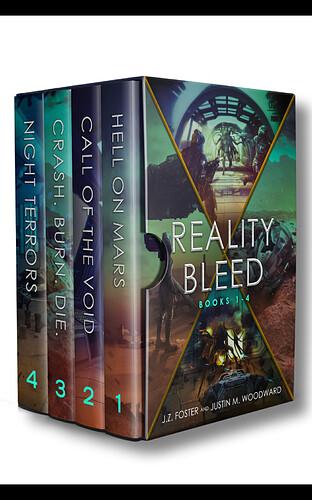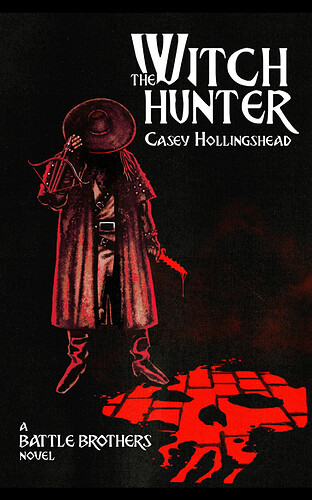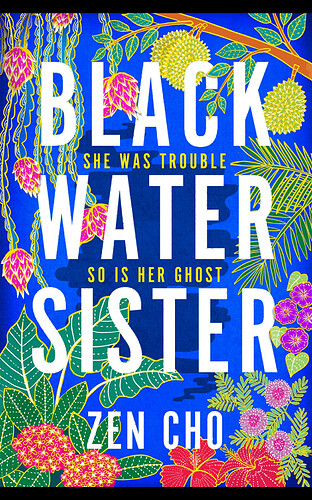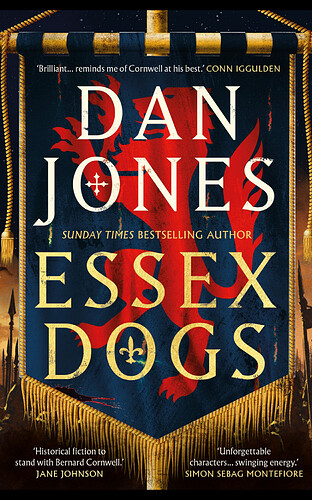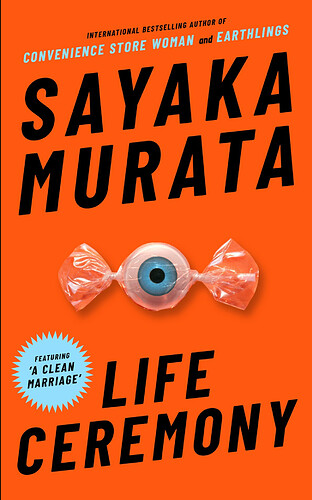Not read Bujold in decades. Don’t think I remember enough of it to compare them.
And here are 5 great books I read in 2022!
The books, or the fact they were put in the box starting with book 4?
Just finished The Blade Itself. Abercrombie has great character development and dialogue. The action scenes are great. The world building is decent. My biggest complaint is the story is thin. I realize it’s the first book in a trilogy and I know many of you have read the trilogy so my question is does the story flesh out better in the 2nd book?
Trilogy is worth it. The story is doing something very different even if it’s not quite the sharp new idea it was back in 2006, so it may not ‘flesh out’ how you want it to, but it does develop considerably.
I finished Before They Are Hanged last night (book 2 of the trilogy). Where The Blade Itself was a long introduction to the characters, book 2 throws them headlong into their “quests.” I’m starting Book 3 tonight and can’t wait.
I’ve read all 3 of the First Law trilogy recently and really enjoyed them. The characters always think the worst is going to happen to them, but then it doesn’t. Each point of view character has his/her own style. Some main characters, like Glokta, are really not nice to their prisoners or enemies, but then they show a kindness toward people like Ardee. It’s so easy to root for Jezal all through the books, as he starts off a real prick then grows as a character.
Notes on an Execution: A Novel
A novel told from the first person point of view of a serial killer and the detective hunting him for a decades old crime.
A commentary on the hero worship placed upon american serial killers whilst their often female victims remain nameless.
A fantastic read, an emotional grab which elicits tears at the end, a book I couldn’t put down. 5 stars, would read again.
Just been checking the blurb on a book, and I can tell by the name of the protagonist’s boyfriend that it is a load of shit.
Have any of you developed a spidey sense for terrible books?
I wish I had that sense so I didn’t start so many of them …
If my wife says “that looks interesting…”
It was only a matter of time that my fanaticism for the game would spill over. So begins the story of a witch hunter who becomes the captain of a mercenary company, and it’s appropriately bloody, as a war between noble houses gets out of hand. I appreciated the ambition behind the Mcarthyesque prose style, which has a similar spiralling feel, but lacks in quality. Likewise the world itself is imaginative, but some of it is unpleasant for the sake of being unpleasant, which works less well each time you consider it. The lack of polite threats is a refreshing change, nothing is neat, conflicts and their resolutions are messy. Worthwhile.
I posted my review of Ring of Steel, a great book about World War I and how it affected the populations of the Central Powers (Austria-Hungary and Germany).
The abrupt volte face post-wars about German/AH responsibility is quite startling. It doesn’t hold up to the slightest scrutiny, and it remains baffling as to why people try to lie about it.
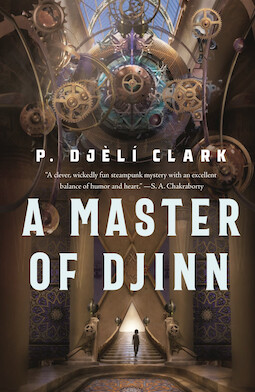
Read this one a while back, but I just recently thought of sharing the recommendation now that I’m finally reading a lot of the books everyone else recommended. (Thanks!)
Set in an alternate 1912 Egypt where supernatural beings and fantastic machines are commonplace, an investigator has to figure out if the perpetrator of a murder really is a resurrected mystic or an impostor with an unknown agenda. Fantastically well-told and well-deserving of the awards it won (including the 2022 Nebula Award), it makes me want to read more of Clark’s work as soon as I get the chance.
Going back to the old country to find out you’re a medium and your dead grandmother is going to interfere in your life as you go through your own culture after growing up in another country. Well written, not my normal genre at all really, as it has a strong family comedy element and I don’t usually enjoy that.
I like the actual incorporation of historical knowledge, as the English invade France to install a king, but what I don’t like is the invention of unpleasantness in order to be distinctive, and there’s some really odd additions here (drug addiction?) that make me wonder just what Jones is trying to do. Presumably a book following a small group of British drunks on a violent spree in continental Europe is simply too outlandish to be understood otherwise.
While translations can be awkward or feel stilted, they’re often worth reading regardless because of the different viewpoints presented, and Murata’s work often feels like something entirely different than anything anyone could have originally composed in English. Weird, original, unsettling.
Because the psychic wound has healed enough to give it a little prod, this surprisingly short and readable book is an impression of how the Brexit negotiations looked from the EU side. Essentially the Barnier team‘s job was to patiently stand there offering an easily readable list of options as the UK punched itself in the face while shouting abuse and falling over its own feet. The UK political class and commentariat as a whole come out of this book looking especially blinkered and incompetent.
The most interesting insight was how the Barnier team worked. The EU has a not unreasonable reputation for being bureaucratic, opaque, and disunited, and the UK counted on being to exploit the last of these. The EU team went against all of these stereotypes - it was a small team that cut across directorates but drew expertise where it needed it, was open as a policy, had a clear mandate and worked to keep EU governments and institutions informed to maintain unity. None of this was secret, the negotiating positions were all open, and the weight the EU put on its own red line - the Single Market - was not understood by the UK. Depressing.
